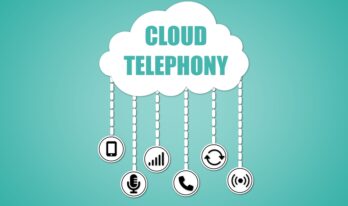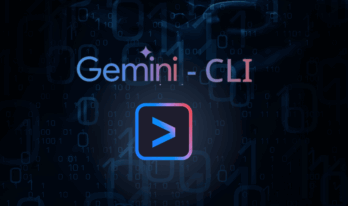To make any computer model mimic the action of the human brain would be the next technological marvel.
Cognitive computing works on the principle of artificial intelligence, which aims at imitating human thoughts within a computerized model.
Such systems have the efficiency of continuously grasping knowledge from the sorted data that is fed to them.
A lot of data is fed regularly to such systems. This aims to improve such systems in terms of decision-making as well as predicting certain patterns.
Some of the Best Cognitive Computing Tools
Failure to apply good maintenance can surely disrupt the whole chain of industrial operations.
To overcome this paradigm of maintenance, Spark Cognition’s analytical solution, SparkPredict, was introduced.
It helped in overcoming the maintenance downtime and thus boosting the overall operational cost savings.
SparkPredict analyzes various data, whether structured or unstructured. It then uses machine learning techniques to respond with appropriate actions acceptable at that time.
Machine learning techniques help this tool to become efficient enough in predicting errors or patterns.
Launched in the year 2015, ignio was introduced with the aim of combining three main pillars of technology. These were machine learning, artificial intelligence and advanced software engineering.
The main aim of this platform was to autonomously curb the issues whenever they arise. It is a cognitive automation software package specializing in accelerating deployments and value realization by customers
ignio™ Cheetah has added new features to its earlier properties of blueprinting as well as automation facilities like:
- Management of priority events.
- Predicting the tasks that are in urgent need of attention.
- Reduction of false alerts.
- Efficient enough to handle the incidents with understanding from its past history.
By adaptive property, not only it understand real-time human actions but also becomes adaptive to the technologies around.
This property of ignio™ cheetah makes it easier for many of its users to be able to extend the functionality to support new technologies.
Some of the features of ignio™ are:
- Support to cloud deployments.
- SaaS engagement models.
- Ability to handle larger data volumes.
Data accessibility still remains to be a big challenge for technology giants. The majority of the issues are repeatedly found in the healthcare sector.
With federal agencies getting strict on healthcare organizations are asked to provide better data through robust measurements.
Thus, there was a need for a niche product to deliver the same.
Apixio Inc., an AI healthcare analytics company, is bridging this gap with the introduction of its cognitive computing platform Iris.
Iris uses doctors’ notes and records to derive insights from the same.
Iris uses a machine learning model that is fed with the data that has been extracted through data integration tools, as well as real-time data providing tools.
AlphaGo was introduced as a cognitive computing tool in the field of playing board games.
It works on algorithms utilizing a combination of techniques like machine learning, tree traversal, and deep neural network technology.
Before the input is sent to the neural networks, a bit of game-supportive feature is applied to it.
Both humans and computers are given extensive training for this cognitive computing tool.
In the initial stages, the neural networks were made to analyze the human gameplay behavior. To make AlphaGo intelligent enough to beat the board grandmasters, it was also made to mimic the moves from the historically recorded games.
Also Read: Real-Life Examples of Cognitive Computing
Aila was introduced by Enterra Solutions. It aims to tackle questions that are unanswerable by traditional data analytics.
It aims for minimum dependency on the data or data experts and generating cost-effective insights.
Aila combines both artificial intelligence and advanced mathematics to solve problems of humans. Unlike earlier enterprise software that had its tasks predefined, Aila is something different when it comes to working.
Aila is a cognitive system that improves itself on the basis of experience and generates insights on demand.
Aila, unlike other tools, works on logic to differentiate complex interactions among variables.
It taps into the storehouses of information with knowledge about your business. It also bypasses the statistical barriers to derive the insights, and that too quickly and on demand.
It’s basically an auditing tool for AI. It was introduced with the sole aim of bridging the trust gap between AI and its delivery.
Cortex Certifai does so by using AI for the detection of vulnerabilities in black boxes without being dependent on their access.
AI is smart enough to improve itself and has a tendency to outsmart humans. This remains a reason that before AI to be adopted and to trust it, there needs to be confidence in its decisions.
It has been awarded the Global Annual Achievement Awards for Artificial Intelligence for responsible AI and ethics.
CognitiveScale is currently working on the counterfactual fingerprinting technology. Also, on the Cortex Certifai product with advanced features, including a multi-user role-based dashboard.
IBM Watson mainly focuses on healthcare data.
It was introduced to support healthcare in curbing fraud and providing better medical care. And also to help in strategic decisions related to treatments.
It derives its findings from the medical literature for its correlation with symptoms. IBM Watson sifts through data libraries to discover the insights for answering questions
Like other tools, it also gets smarter with every interaction and finding. Thus, it is able to bring back relevant answers for certain questions.
It does not work on any predefined rule; instead, it generates hypotheses based on the vast amount of data and potential connections.
IBM Watson Explorer Engine is one of the offerings from IBM Watson. It has the capability of converting unstructured data to derive information from it.
It works in three stages:
-
- Data feeding
- Data indexing
- Linguistic processing
When the data is fed, it gets indexed, which ultimately helps the developers in determining its cognitive features.
After this, Watson performs position-based indexing.
This type of indexing has added advantages over the traditional one, which is almost universally used in open source search systems.
IBM Watson’s use of applying positional indexing helps the data to liberate itself from the traditional rigid document models
The linguistic process is done while the data is ready for indexing, and again done whenever there is a query from the user.
Another one amongst many important features of IBM Watson is that of alerts, which it provides via email.
Conclusion: Cognitive Computing Tools
Cognitive computing tools, with their intelligence, have helped draw various strategic conclusions. Our above-mentioned list of tools is some of the best available in the market for you to choose from.
Also Read:
Understanding Neural Network Architectures for Machine Learning




